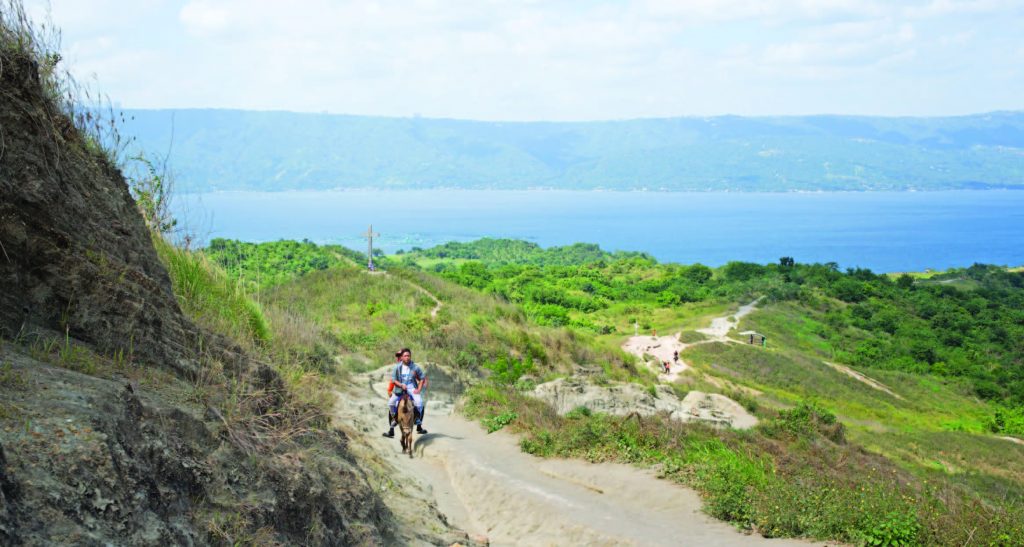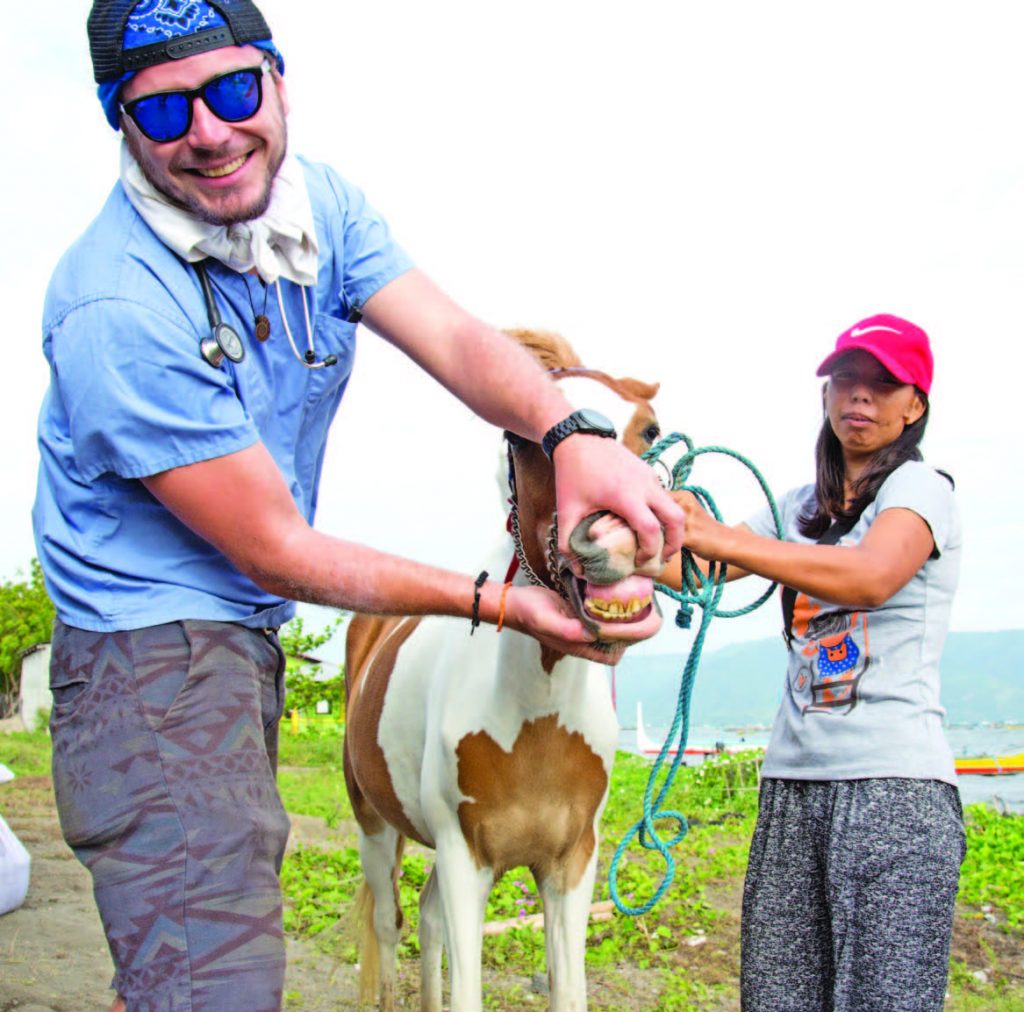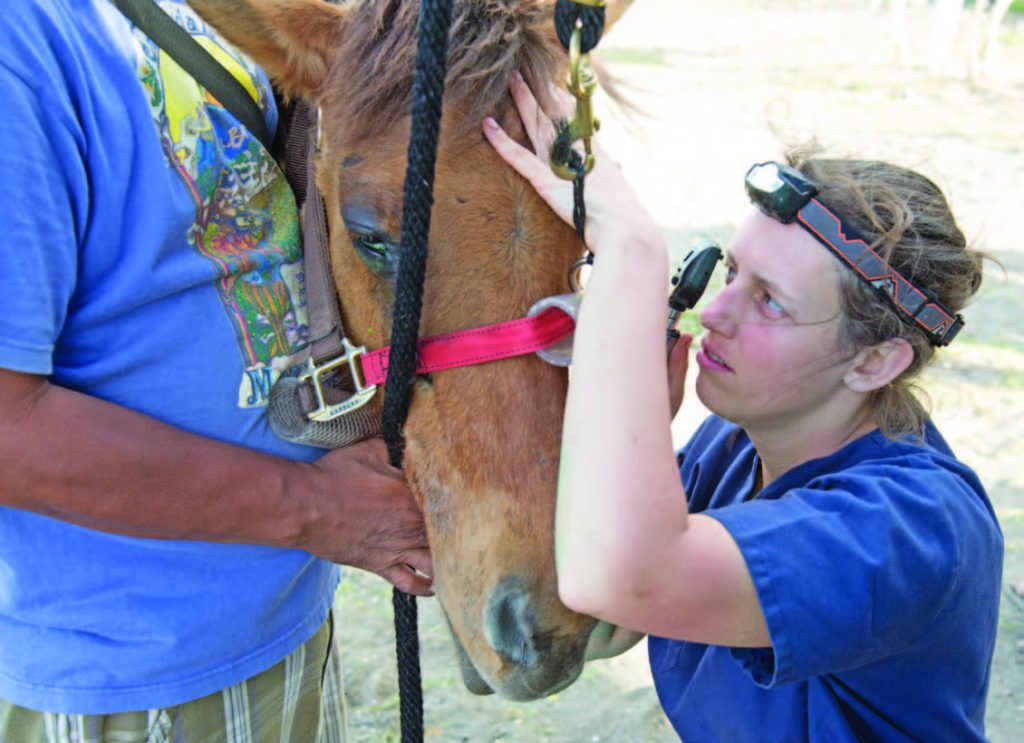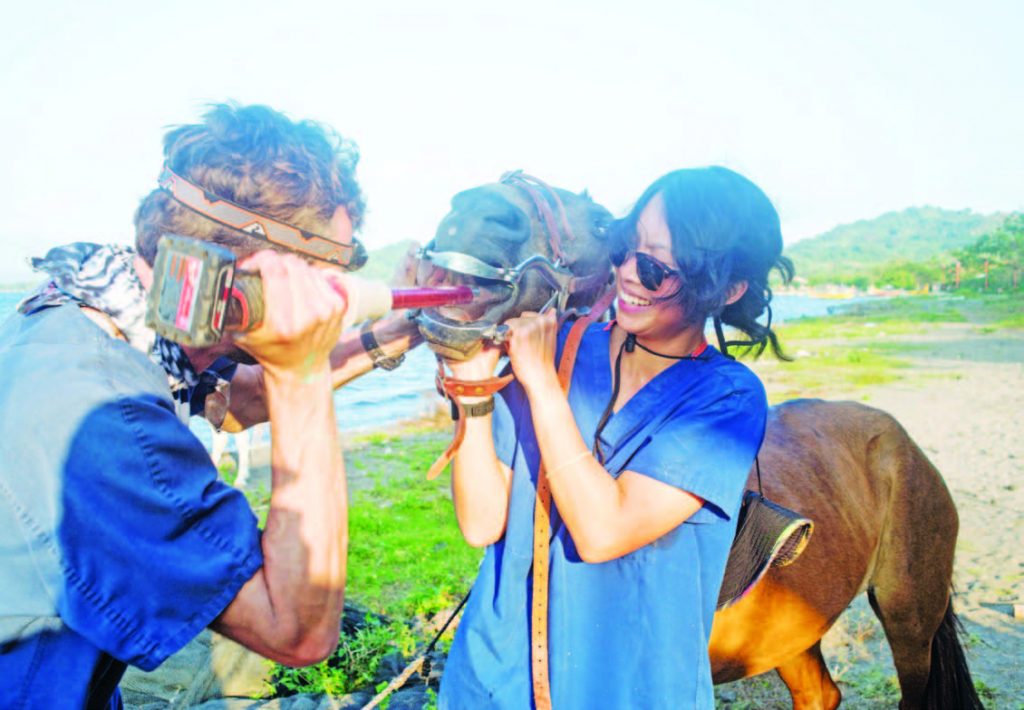A short ride away from Metro Manila lies Taal Volcano: the smallest active volcano in the world, and the second most active in the Philippines. Set in an island within a lake within an island, a relatively easy hike of 30 minutes to one hour on this small but mighty volcano will reward you with a picturesque view of the surrounding Taal Lake.

Amidst the beauty of nature in Taal, however, beautiful beings of nature live unnoticed.
“Beasts of Burden”
Horses are forced to work in Taal. Although the trek to the volcano’s crater is undeniably easier than most others near Manila, many visitors opt to ascend with the use of the enslaved horses of Taal. The horses are forced to carry a heavy load of one to two people each — plus baggage — up and down the slopes of the volcano, with no comfort of rest or even water to look forward to.

A sight of green plains and blowing manes, the sound of hooves as they gallop to their heart’s content — all that, and the feeling of freedom, are what these majestic beings evoke in me. But they’re tied up, neglected, and pushed beyond their physical limits in Taal.
The Taal Horses
PETA Asia partnered with International Veterinary Outreach (IVO) to alleviate these horses’ suffering through Taal Volcano Horse Health Clinic. In February 2017, the first clinic was held and the horses received their first veterinary care.
We talked with PETA Asia’s Ashley Fruno about the condition of the Taal horses, the clinic, and the project’s success stories.

Because no veterinary clinic is situated in Taal, the horses in the island had never received any medical attention. Currently, there’s an estimated 1,500 horses there. Most of them are not given names and are only identified by the number assigned to them for trekking.
When asked about the worst condition of a horse she saw, Ashley shared, “It’s hard to pinpoint just one case, because we see horses in very poor condition every day of the clinic. The animals, many of whom are still juveniles and most of whom are malnourished and underweight, climb the steep mountain side without any rest. They stumble on the rocks and are made to battle their physical exhaustion with the threat of a whip. When they get to the top, there are no food and water troughs waiting; instead, they are granted only a few minutes of rest before they are forced to start the dangerous trek back down.
“When the horses are not being used to climb the volcano, they are tied to trees or posts in mud-filled lots. Often, these horses are restrained so that they cannot lower their heads. Lying down is commonly impossible. Some horses develop wounds from poorly fitting halters and saddles.”
Hope for the Horses
“Most of the people who own the horses are not cruel people — they live in poverty and simply don’t have the resources or access to information to improve their horses’ lives,” Ashley replies when asked about the project’s impact on the community in Taal.

She continues, “Our project hopes to empower them with the knowledge and resources they need to care for their horses well. We’ve found that when people take advantage of these free services, their attitudes are affected by the caring and professional veterinary teams and by the high-quality care given to animals they may have previously regarded as nothing more than profit-making machines.
“We also hold educational seminars during each clinic to teach people how to best care for their horses, in ways that improve both the quality of life of the animal and their physical health.”
As long as there are people paying for the use of Taal horses, these beings will continue to be forced to work. Through the efforts of PETA Asia and IVO, however, their hooves will fit better, their health will be looked after, and their stories will be told.
Be involved!
PETA Asia and IVO can use all the help that they can get in improving the lives of the horses in Taal. If you want to be a part of the solution, kindly do get in touch with PETA Asia at [email protected].
What is Taal volcano horse health clinic?
Taal Volcano Horse Health Clinic, a project of PETA Asia and IVO, provides veterinary care to the horses forced to work in Taal. The clinic provides free teeth floating (i.e., filing down the sharp edges on the horses’ teeth), hoof care, vaccinations, and parasite prevention. The project also holds educational seminars for the keepers of the horses.

“Horse 306 gained 100 pounds (a jump from 450 to 550 pounds) after regular deworming, and her owner [attended] an education seminar to learn how to properly care for her,” Ashley told us as she remembers how the horses benefited through the clinic.
Large-scale clinics are held every six months, with each lasting four to seven days and involving an average of nine vets and one farrier. Ashley details, “After each large-scale clinic, we have a booster clinic four to six weeks later for horses who received their initial vaccinations at the large-scale clinic (they need to be boostered following the first dose). Those clinics also treat other medical issues that arise. If the project receives enough donations, PETA also holds two smaller clinics in between with two local veterinarians to ensure the horses have as regular access to medical care as possible.”
Since the project’s first clinic in February 2017, 986 horses have been treated, with many of the horses receiving attention in multiple clinics.
This appeared in Animal Scene magazine’s March 2019 issue.






